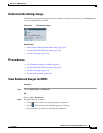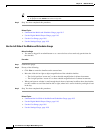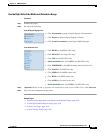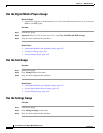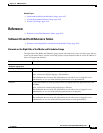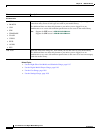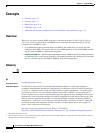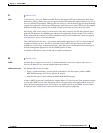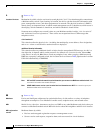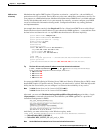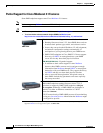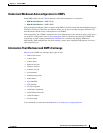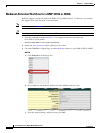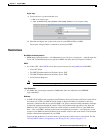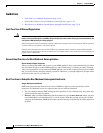
11-3
User Guide for Cisco Digital Media Manager 5.2.x
OL-15762-03
Chapter 11 Register DMPs
Concepts
C
Return to Top
CDP
Cisco Discovery Protocol. DMPs and other devices that support CDP can communicate facts about
themselves, amongst themselves, over any physical network medium that supports Subnetwork Access
Protocol (SNAP) encapsulation. CDP uses the data link layer, which connects physical network media
to upper-layer protocols. And because CDP operates at this level, two or more CDP devices that support
different network layer protocols (for example, IP and Novell IPX) can learn about each other.
Specifically, CDP causes devices to advertise not only their existence, but also their platform types,
protocols, IP addresses, and SNMP-agent addresses to neighboring devices on their LAN switch or
WAN. And when their connected switch is Medianet-ready, device identification can also trigger an
Auto Smartports macro to run automatically.
Thus, CDP facilitates discovery—by network management applications—of Cisco devices that are
neighbors of known devices. And this is particularly useful when such previously undiscovered
neighbors use lower-layer, transparent protocols. After they possess information about such devices,
network management applications can send SNMP queries to them.
In addition, CDP detects native VLAN and port duplex mismatches.
D
Return to Top
DHCP
Dynamic Host Configuration Protocol. A standard method for devices to request, and servers to
allocate, IP addresses in a network without human intervention.
DHCP option 125
An optional DHCP relay class that:
• Injects “vendor-identifying, vendor-specific information” into the request (within a DHCP
DISCOVER message) to receive a dynamic IP address.
• Identifies the type of client sending the DHCP DISCOVER message.
In turn, a DHCP server that is configured to support Option 125 can relay the client-generated request
to some other DHCP server. This mechanism allows an organization to designate DHCP servers for
clients that meet particular criteria. For example, you might want all of your DMPs to receive their
IP addresses from a DHCP server that you reserve for this purpose exclusively.



